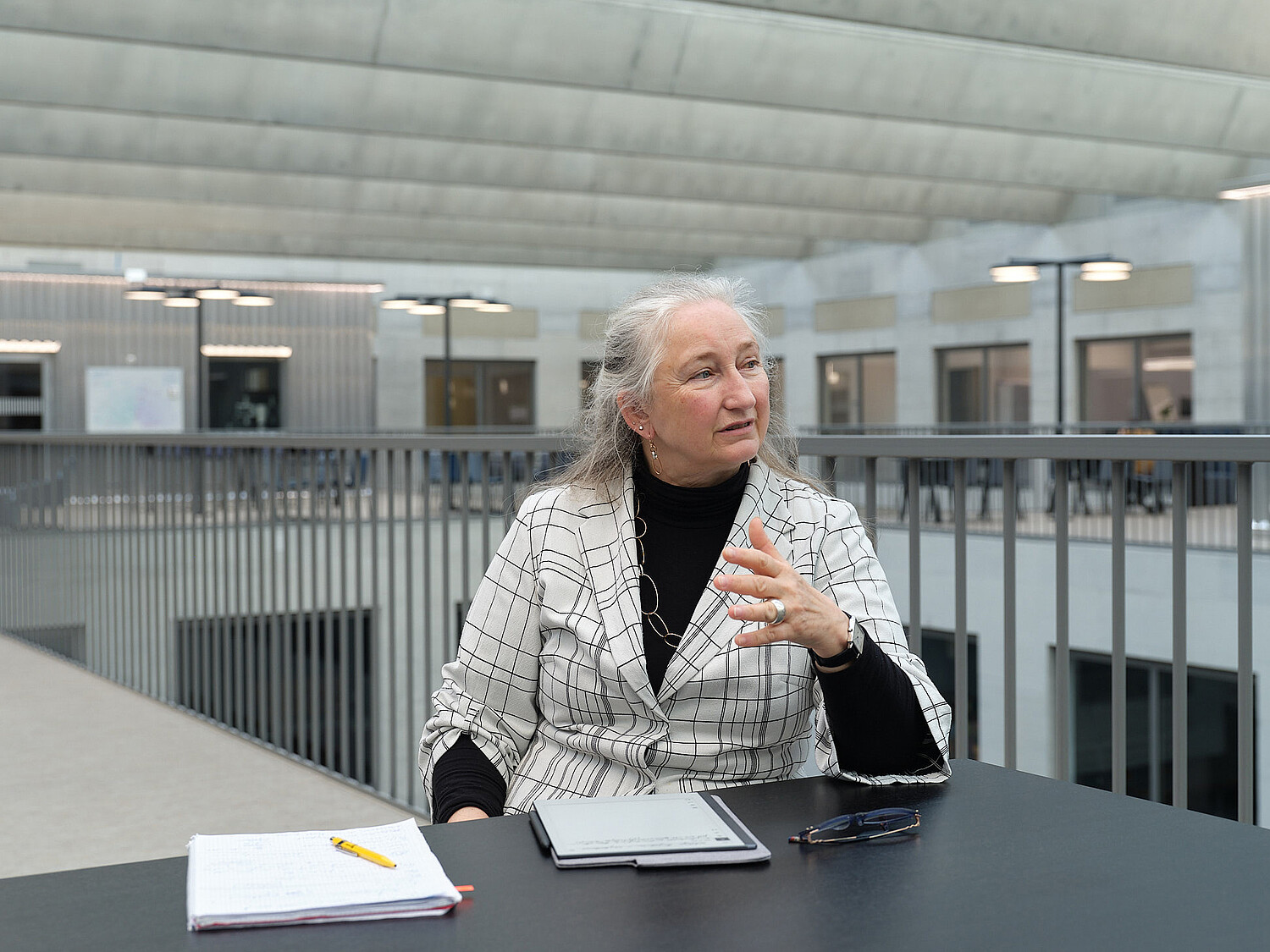
“Old age should be regarded as a valuable resource”
Ageing is both multifaceted and multi-layered, says Katharina Fierz, project manager of the Applied Gerontology focus area at ZHAW. In this interview, she talks about the greatest challenges and potentials of an ageing society, healthy ageing and gerontology research at ZHAW.
Ms Fierz, what do you associate with the subject of “old age”?
Katharina Fierz: Complexity is the first thing that comes to mind. There is no such thing as “the elderly” as a uniform group. Growing old today is characterised by highly different aspects. Alongside the different phases of old age – such as older workers, the “young old” or the very old – we see the highly different life patterns of baby boomers, traditionalists and LGBTI. People’s circumstances also differ according to their educational background and income, and great diversity prevails in the ageing process. Some people can live independently up to the age of 100, while others require care at an early age.
What do you see as the potentials of an ageing society?
Experience, knowledge, skills, wisdom. Many older people have a great desire to continue contributing to the gross national product through paid or voluntary work. Society could benefit from older workers remaining in the knowledge-generation process as "golden mentors". Various models of intergenerational cooperation exist. It would be possible for a person to relinquish some or all of their responsibility with a view to retirement while still continuing to contribute their knowledge and skills. I’m thinking here of “seniors@work”, a job network for those aged 60-plus with experience of life. The potential of the older generation also lies in the free time they have at their disposal after retirement, which contrasts with the intense involvement and fast-paced schedules of their working lives.
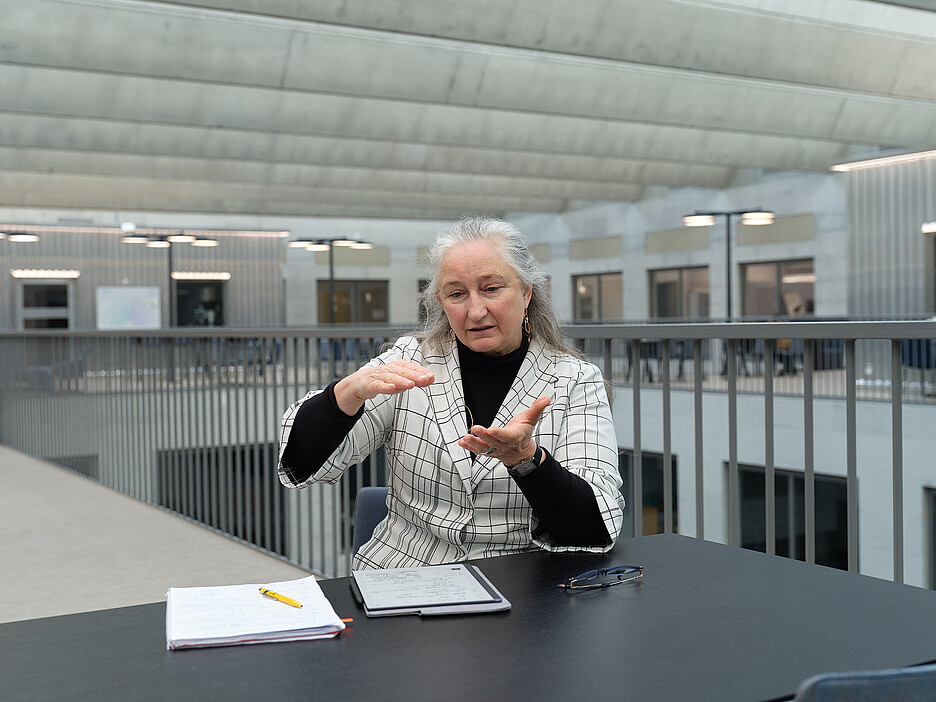
About the interviewee
Katharina Fierz has been Head of the Institute of Nursing at ZHAW since 2018. The 60-year-old doctor of nursing science is also project manager of the interdepartmental Applied Gerontology focus area at ZHAW. This was set up a bit more than a year ago after ZHAW took over Pro Senectute Switzerland’s special collection on the topic of old age.
Do the pensioners of today really still have time? Any time you want to arrange something with them, they are often too busy to come.
They want to use the time that remains to them in a meaningful manner! My godmother looked after schoolchildren in integration classes after she retired, practising mathematics with them. She greatly enjoyed that. Others work as mentors or project managers. Initiatives such as “Rent a Rentner” offer pensioners freely plannable opportunities to deploy their skills and experience in a meaningful manner. You can use this platform, for instance, to find older people with special skills to do gardening or to get rare old machines running again, such as cast-iron Bernina sewing machines or a Citroën DS. There are hardly any experts still left today with the knowledge and skills required to do this. Old age should be recognised as a valuable resource and not regarded as a stigma.
Old age would not appear to be a stigma in politics. Silver-grey hair can frequently be seen there.
Unfortunately, this is not reflected in age-appropriate or innovative, wisdom-based politics.
In the light of this complex topic, ZHAW initiated the Applied Gerontology focus area. Why that?
If you look at the complexity of an ageing society, this calls for solutions at the level of the individual, the system and society. The keywords here are old-age provision, healthcare, provision of support, social participation, volunteer work, care by family members, digitisation, housing and also the participation of older people in the labour market. This list clearly highlights the enormous need for solutions to these issues and shows that an interdisciplinary and interprofessional approach is required. With its eight completely different schools, ZHAW is uniquely positioned in this respect and provides an excellent starting point. Research has already been conducted on these topics in numerous projects at ZHAW, and different Schools offer services, continuing education courses and modules with a focus on old age and ageing. In future, we intend to promote networking between internal and external players to a greater extent, enabling us to work together more intensively with organisations, companies, foundations, associations and federations, such as Pro Senectute.
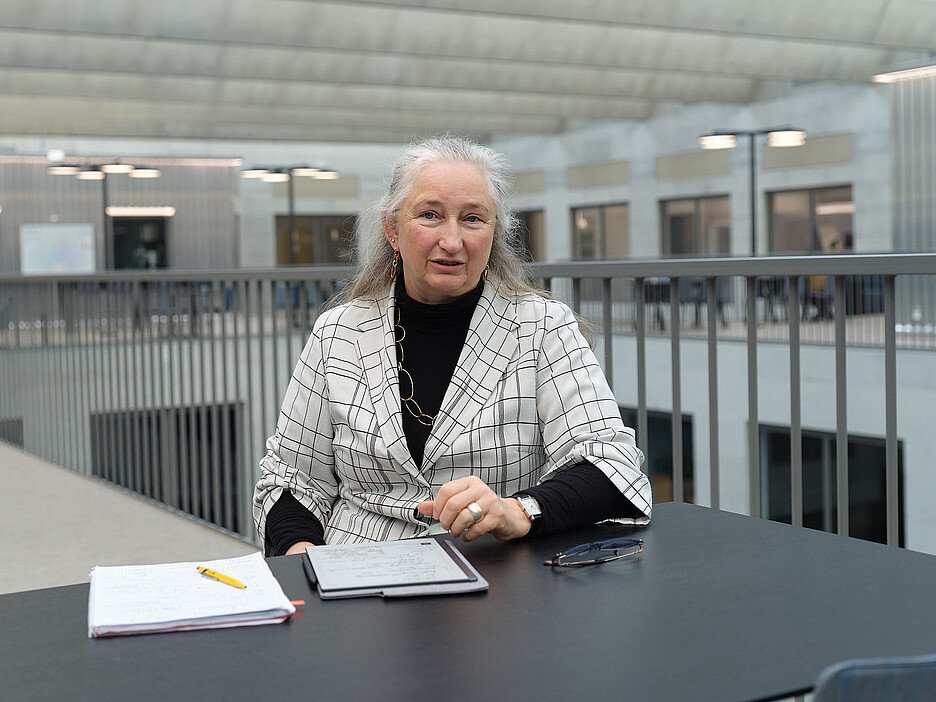
Healthy ageing starts in childhood. Are we on the right path with our research into old age?
While the idea of adopting a prevention-based approach is important, we need to be careful. If ‘healthy’ becomes normative, this could lead to a two-class society and discrimination. It is a privilege to be able to set about preparing for a healthy old age already in childhood and then, as an adult, to create an environment that permits healthy ageing. Many other influences also come into play apart from social and socio-economic factors. These include genetic, biologistic and environmental influences and they all have to be correctly configured in order to achieve healthy ageing. The interaction between poverty and illness is important in this context. On the one hand, poverty has been shown to be a risk factor for illness while, on the other hand, the strict separation of nursing care and support services (the latter include washing, shopping, cooking and transport, etc.) and the high proportion of support costs that those concerned have to pay themselves, is also a risk factor for poverty. Switzerland is one of the countries where private individuals have to contribute the largest share from their own pocket for support services.
Why are you afraid of a two-class society?
At some stage, advertising discovered “old age” in the form of financially well-off and mobile older people. They go on cruises, take up wellness offers and engage in activities of whatever type. It is suggested that they are able to do this because they take trace elements and eat healthily, etc. The danger is that the image conveyed by advertisements of healthy, mobile and active pensioners results in a standard being established for everyone – on the one hand, in terms of everything people should be able to afford after retirement, and on the other hand, with regard to people’s state of health, in line with the motto “if I do everything right, I won’t get ill.”
“It would be unfair to say that it’s people’s own fault if they are ill in old age. Healthy ageing should not be taken to be the norm.”
I would like to make it clear once again that while we can determine and plan ways in which all individuals can age in a healthy manner, what we cannot say for certain is whether we ourselves will actually age healthily. Control over the ageing process and health and health risks depends on a large number of factors that can only be influenced to a certain extent. These include the socioeconomic status or knowledge about the factors that cause an illness – which is what enables people to take preventive action in the first place. Other infirmities are caused by accidents or physically demanding, repetitive work over a prolonged period of time. It would thus be unfair to say that it’s people’s own fault if they are ill in old age. Healthy ageing must not be understood in a normative and absolute manner.
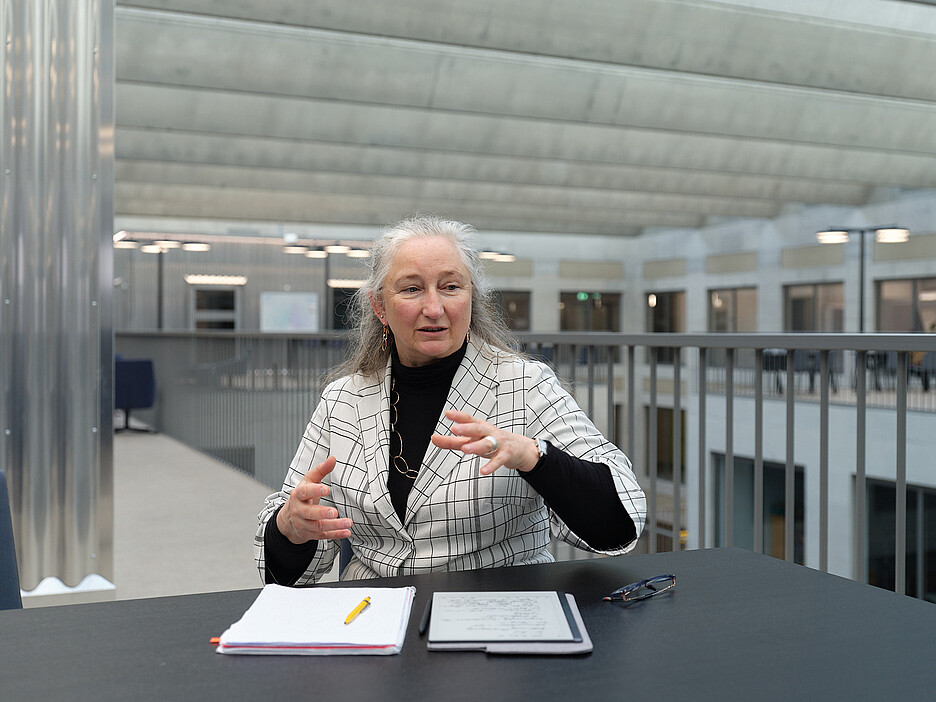
“Millions could be saved in the healthcare system if we consistently acted on the realisation that caring for chronically ill people requires interprofessional competences and continuity.”
What, in your view, are the greatest challenges of an ageing society?
Quite clearly, the many different ageing scenarios, yet also high-quality, affordable healthcare and the participation of the elderly in social life.
What impact does the ageing society have on the healthcare system and the provision of healthcare?
More professionals are required, since there is more chronic illness in an ageing society. The healthcare system is not, however, configured for looking after chronically ill people, even though there has been talk of this for more than 20 years. This calls for the coordination of care services and continuity in care, including when a person is admitted to hospital in the acute phase of a chronic illness.
What could continuous care look like in concrete terms?
Positive experience has been made with regular phone calls, video calls and visiting. Millions could be saved in the healthcare system if we consistently acted on the realisation that caring for chronically ill people requires interprofessional, high-level medical competences, a special system and continuity. Advanced practice nurses, occupational therapists, physiotherapists and midwives, for example, are able to recognise health problems at an early stage and, with the appropriate competences, can take the appropriate measures. They have a good knowledge of chronic illnesses, on the one hand, and also know about living with them, on the other. The healthcare system or provision of healthcare needs realigning at all events, and this would certainly bring relief – including in financial terms.
Why is this not happening?
Attempts are being made instead to save on costs in the short term by replacing an increasing number of qualified staff by less well-trained employees. This results in a decline in quality. Progress is also being hampered by laws and professional regulations in the individual occupations, such as through a lack of decision-making competence.
Where, for example, should there be more decision-making competence?
As studies have shown, it would be possible to save millions if long-term care staff were given more specific training and had the corresponding decision-making competences. In many cases, staff are unsure of what to do or are overwhelmed in the event of unexpected changes in the health of residents in their care and prefer to send a resident to hospital as an emergency. A recent study from Switzerland shows that avoidable hospitalisations of residents in long-term care homes cost the healthcare system 100 million annually; 42 percent of these hospitalisations could be avoided.
“I’d rather prefer a shop as a meeting place to a park.”
Why do you regard participation as one of the biggest challenges?
The challenge lies in not excluding exceedingly diverse groups of older people from social life and society but instead ensuring that they are included in a way that meets their needs. Digitisation plays a key role here. Today, participation is scarcely possible without computer skills. This constitutes an enormous challenge for “digital immigrants” who did not use these tools and options during their working life and only encounter them at the age of 70 or 80. And it can constitute an obstacle to social participation.
German social expert Thomas Klie wrote a book in 2019 entitled “Wen kümmern die Alten? — Auf dem Weg in eine sorgende Gesellschaft” (“Who cares about the elderly? – En route to a caring society”). Have we made any progress on this?
It has to be said that 2019 was not that long ago. Caring communities are one approach that is gaining ground in our country too. During the first lockdown, there were reports of numerous initiatives aimed at enabling social participation, at a time when the elderly were scarcely venturing out of their homes. I am convinced that there are a large number of people who have a social conscience. Where I live in Zurich, for example, there is a grocery shop that serves as a social meeting place for those living in the area. The couple who own the shop look after their older customers. A “Good morning, how are you today?” is enough to find out how someone is faring. If a person who normally comes to the shop every day fails to come for several days running, the shop owners notice and they telephone them or pay them a visit. I’d rather prefer a shop as a meeting place to a park.
Glossary
Gerontology is the scientifically based study of ageing and old age. It deals with the physical, psychological, social, historical and cultural phenomena of ageing and looks for ways to solve specific problems.
Geriatrics is a branch of medicine that deals with the diseases of ageing people.
Advanced Practice Nurses: Graduate nurses with an MSc in Nursing are referred to internationally as Advanced Practice Nurses (APNs) if they have in-depth nursing expertise, are involved in complex decision-making processes and take on greater responsibility when deploying their skills in clinical practice. Other health professionals in advanced practice roles from the areas of occupational therapy, nursing, and physiotherapy, and also midwives, similarly contribute to improving healthcare in interprofessional settings and can shape changes in healthcare. An MSc in a relevant subject is required to take on an advanced practice role.
Research for healthy ageing: the subject of ageing has many challenges in store for health professionals. How can elderly, chronically ill people be cared for? How can new technologies be harnessed to improve the quality of life? What does a higher retirement age mean in terms of health? What can we learn from other countries regarding prevention? How can we prevent falls and better recognise the symptoms of dementia sufferers?

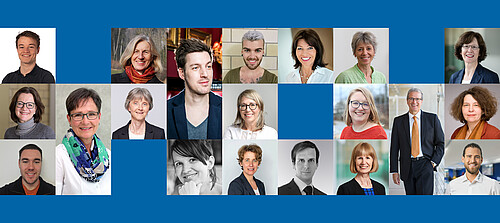
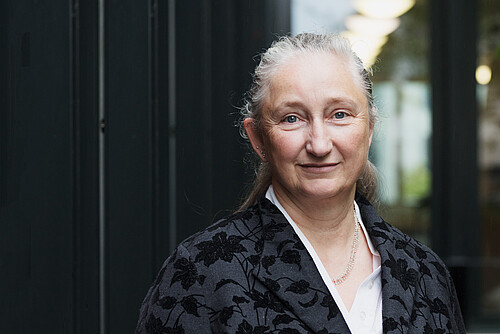
0 Comments
Be the First to Comment!